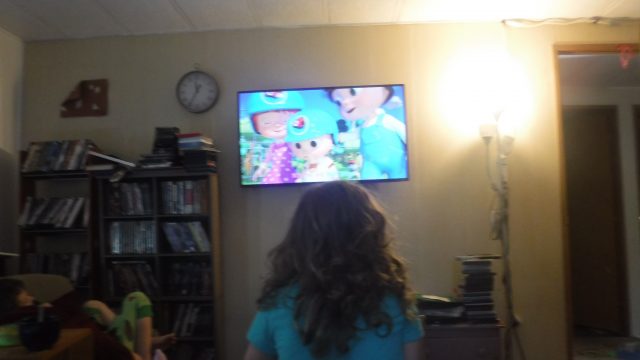Look, Disney fan I may be, but I’ve never been a fan of the multinational conglomerate behind many of my favourite entertainment options. Still, at least I know who they are. It’s true that the company used the friendly face of Uncle Walt to cover up things like union-busting, but at least we knew who Walt was. And it didn’t take much effort to learn about Roy, who was actually the person who understood how business worked and possibly made some of the decisions we blame Walt for. The point is, it’s almost impossible to do that with the producers of some of what my four-year-old daughter Sandy watches, because the Wikipedia page features lines like “attempted to find out.”
I’m willing to bet Sandy could give you more details about what’s going on with Cocomelon, but I’m afraid it’s on the list of things I can’t stand watching with the kids. Sandy gets a chance to watch it, and the first thing I do is put on my headphones or leave the room. Loosely, though, it’s a family that appears to only communicate in song. They sing nursery rhymes. They sing songs about getting through life. They sing alphabet songs. They are horrifically computer animated and they sing; that’s what I know about Cocomelon.
Oh, and PewDiePie hates them; I know that. Because Cocomelon has more subscribers than he does. Two of the videos are the most popular ones in the history of YouTube, one being the most recommended ever. It’s estimated that the show is the most popular on Netflix. It’s hundreds of millions of views on YouTube, plus who knows how many across its other assorted viewing options. It is theoretically possible—it’s hard to compare popularity across platforms—that this is the single most popular thing I’ve ever written about for this column.
Which is why I’m so unhappy about its shady provenance. I don’t know who my daughter’s viewing is supporting and what they support. For all I know, they could be behind the anti-mask campaigns. Eventually, the channel seems to have been tracked down to a couple in Orange County, California, and the idea that content providers have to be tracked down makes me a little uncomfortable. This is not That Ryan Kid and “we’re not releasing our details because we don’t want our child to be harassed by online stalkers.” This is “no one knows anything about the ownership of our company.”
Don’t get me wrong—I have problems with That Ryan Kid, and more specifically his parents, too. And, like Cocomelon, they also have to do with the content as well as what’s behind the content. In the case of Cocomelon, the animation is lousy and the songs are annoying. When they’re older songs, they’ve often added verses because the original was too short. Sometimes, they’ve altered the original lyrics. The songs are repetitive—well, small children like repetitive songs. But many of the songs are incredibly similar to one another as well.
Mostly, the family interacts with friendly animals; one of the kids (they have names, but I don’t care) is in preschool. Neither my eight-year-old son Zane, who hates the show, nor I can remember if the preschool is diverse or not, but as I recall, no one else on the show has friends. Which means it’s yet another show where things might as well not exist if they’re outside the child’s perspective. This seems to me as a parent to be contrary to how my kids experience the world. Heck, I remember myself wanting to play with my older sister’s friends and being annoyed when my younger sister played with mine!
The show, at least, is no better or worse than a lot of other programming out there. Would I much rather Sandy watch Pocoyo or Masha and the Bear or something? Oh, my, yes. And not just because the art on those is better, even though the art on Pocoyo isn’t great. It’s at least an example of how to use primitive computer animation well. And if I don’t exactly know much about the people who make Masha and the Bear, well, at least I know it’s easy to find out and not merely Random People Online.
Help prepare my kids for the upcoming school year by supporting my Patreon or Ko-fi!


